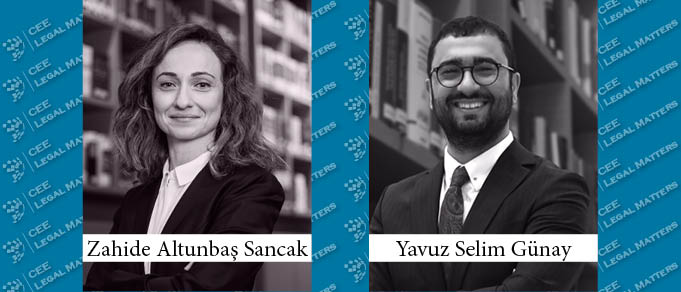After the Russian Federation had launched a military operation against Ukraine; the U.S., the EU, the UK, and a number of other countries began imposing broad economic sanctions against Russia. Those imposed by the United States are among the most economically effective sanctions.
Executive Order 14024 of U.S. which constitutes legal basis for new sanctions against Russian Federation was signed by Joe Biden on April 15, 2021. On the same day, U.S. Department of the Treasury’s Office of Foreign Assets Control [“OFAC”] released Directive 1 on blocking property with respect to certain harmful foreign activities of the Russian government. Directive 1 is superseded by Directive 1A called “Prohibitions Related to Certain Sovereign Debt of the Russian Federation” on 22 February 2022, right after the Russia’s decision to recognize 2 de facto republics which have declared independence in 2014. Then, Russia launched military invasion of Ukraine. In reply to this, United States took action and OFAC imposed new sanctions by releasing Directive 2 and Directive 3.
What is the Scope of Sanctions Imposed by Directive 1A of February 22, 2022?
The scope of the sanctions imposed on Russia in Directive 1 has been expanded with the Directive 1A, and the limitations on Russian sovereign debt have been extended to cover secondary markets.
According to the Directive 1, lending and participation in the primary market for ruble or non-ruble denominated bonds issued after June 14, 2021 [by the Central Bank of the Russian Federation, the National Wealth Fund] is prohibited for U.S. financial institutions. Pursuant to Directive 1A, as of March 1, 2022, US financial institutions are also prohibited from operating in secondary markets with respect to participation in the secondary market for ruble or non-ruble denominated bonds.
Furthermore, as stated in the press release by the Department of the Treasury, VEB Bank and PSB Bank, both of which are critical to Russia's defense sector, are barred from doing business in the United States; these banks have been excluded from the US financial system; all of their assets under U.S. jurisdiction have been frozen; and US citizens and institutions are not permitted to transact with these banks unless they’re authorized by OFAC. All entities, directly or indirectly, owned 50 percent or more by VEB Bank and PSB Bank are subject to blocking under E.O. 14024, even if not identified on Directive 1A or OFAC’s Specially Designated Nationals and Blocked Persons List [“SDN”].
The SDN list of sanctioned persons has been amended in accordance with these restrictions, and several powerful Russians in Putin’s inner circle, VEB Bank and its subsidiaries, and PSB Bank and its subsidiaries have been added to the list. In addition, the three Russian governmental instrumentalities named above are now included in the non-SDN sanctions list. After recent events Russian President Vladimir Putin and Foreign Minister Sergey Lavrov are also added to the list as of 25 February 2022.
What is the Scope of Sanctions Imposed by Directive 2 and Directive 3 of 24 February 2022?
U.S. is aiming Russian financial infrastructure with Directive 2 and Directive 3, as stated in the press release issued by OFAC. Directive 2 and Directive 3 included Russia’s largest financial institutions [namely, Sberbank, VTB Bank, Otkritie, Novikombank and Sovcombank] in its sanction list. The banks subject to the sanctions perform daily foreign exchange transactions of around USD 46 billion combined, with the USD representing for 80% of the total.
With the sanctions, OFAC prohibits activities of U.S. financial institutions with sanctioned persons such as opening or maintaining of a correspondent account or payable-through account. Directive 2 also forbids these activities for or on behalf of foreign financial institutions and the processing of a transaction involving foreign financial institutions. These sanctions will be implemented within 30 days, that is, after March 26.
Conclusion
When all of the sanctions are examined together, it becomes clear that the U.S. aim to prevent Russian private and public institutions from accessing international capital markets and to keep Russia out of the global financial system. The sanctions are expected to have a considerable impact on both Russia and global trade since they target nearly 80% of the Russian banking system. Furthermore, while the said sanctions are not applicable to real or legal persons outside the United States, non-US institutions should be aware that the US sanctions have an impact regardless of the borders. In this context, companies and individuals with commercial ties to Russia should recognize the US sanctions as a risk factor and take proper precautions.
By Zahide Altunbas Sancak, Partner, and Yavuz Selim Gunay, Partner, Guleryuz & Partners

